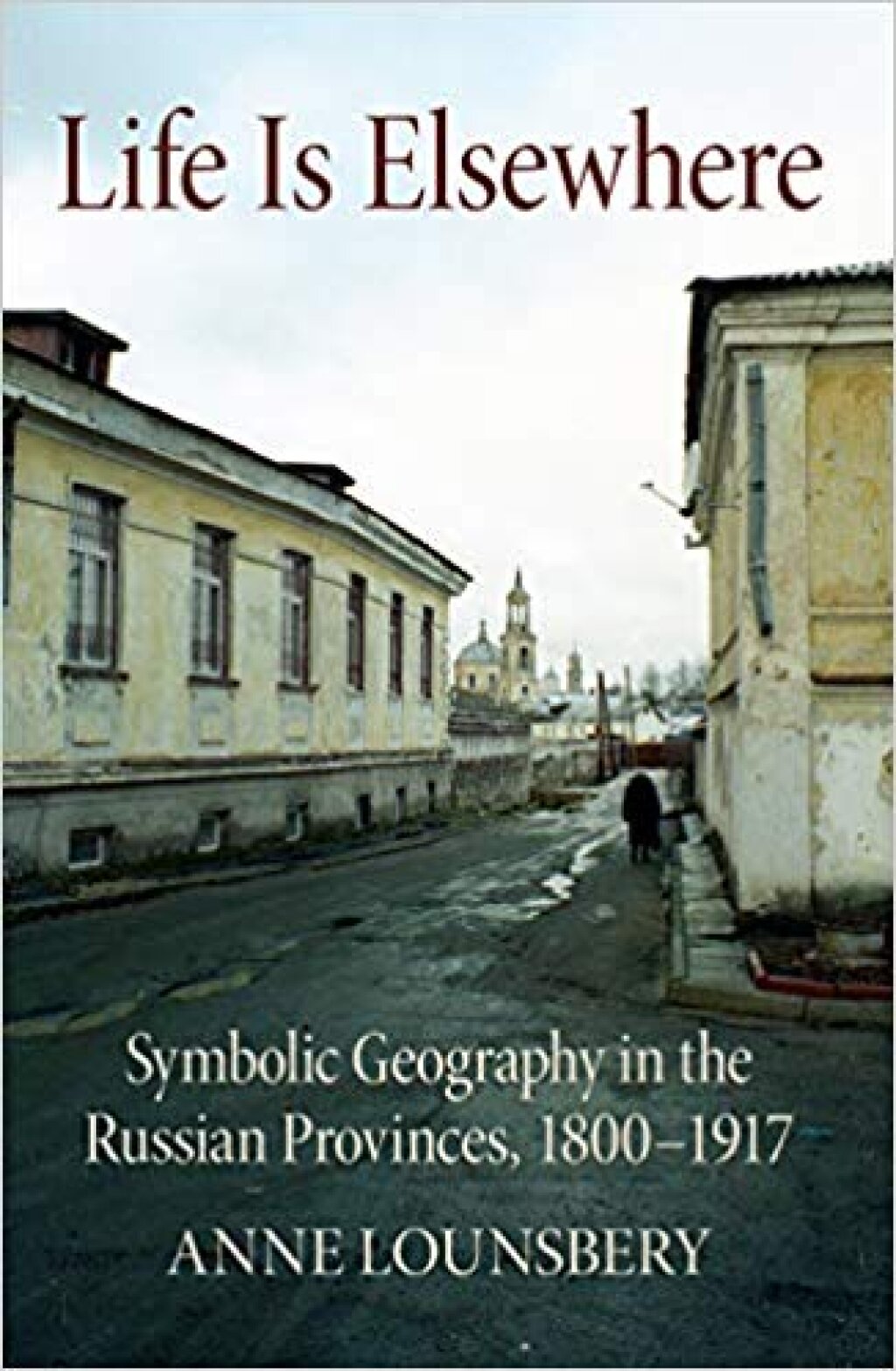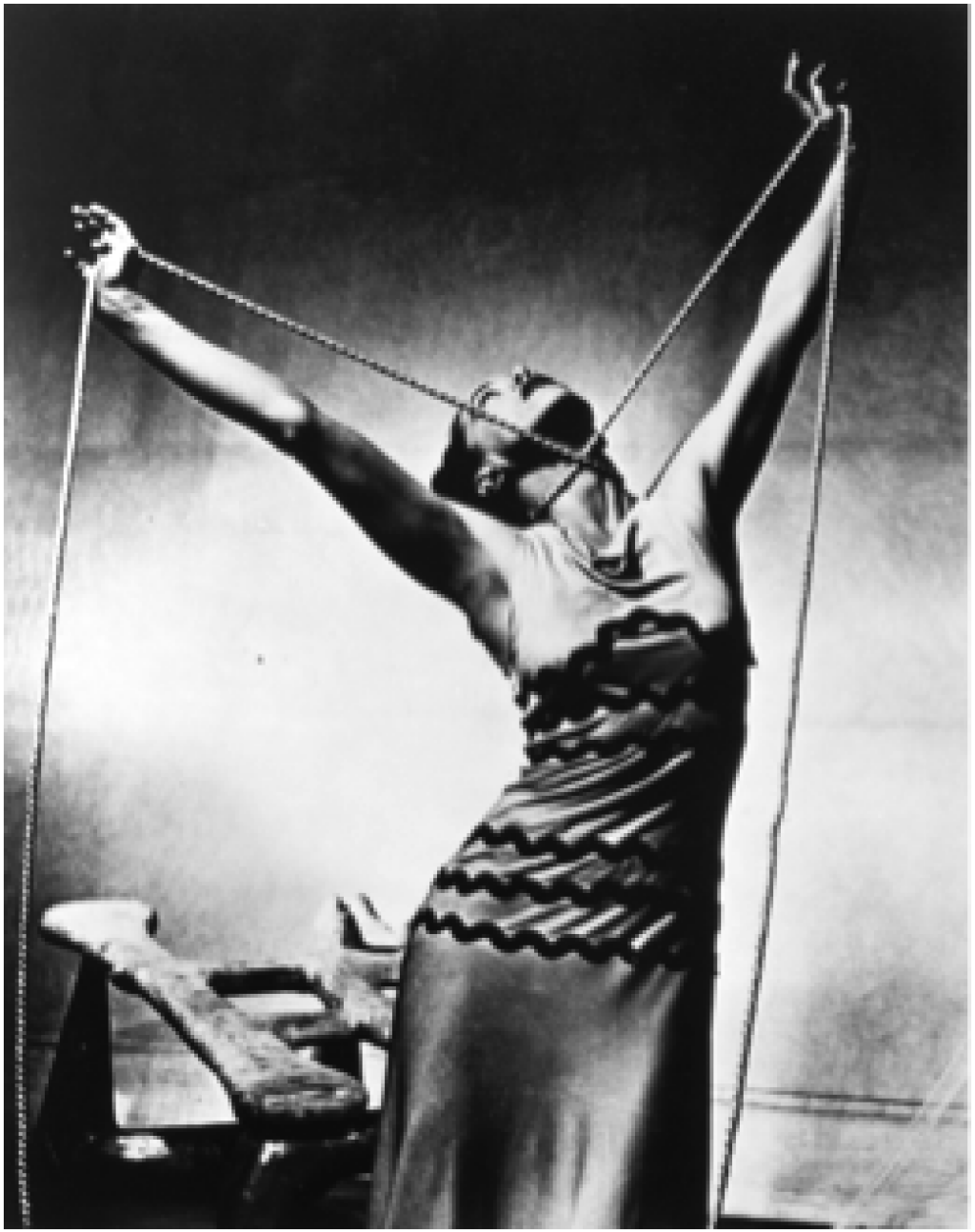This week, All the Russias is delighted to feature excerpts from Anne Lounsbery's Life Is Elsewhere: Symbolic Geography in the Russian Provinces, 1800–1917, just out from Cornell Press. The below segment derives from the book's introduction, titled “Geography, History, Trope: Facts on the Ground.”
Anne Lounsbery is Associate Professor and Chair in the Department of Russian and Slavic Studies at NYU.
This is Part I of a two-part post. Part II will appear tomorrow, 12/11.
The story of Russia’s anxiety about provinciality is the story of its desire to be modern and western (two terms that have often been taken to mean the same thing). To be provincial is to be in some sense behind, and you can only be behind if you inhabit a social world that believes in progress, fashion, the march of enlightenment, etc. In Russia the categories of provinciality and backwardness have long been closely linked (as in the expression provintsial’naia otstalost’): they took shape at roughly the same time, during the period when Russian elites were embracing progress and capital-H History as ideals. In eighteenth-century literature, the countryside was often represented as retrograde and in desperate need of reform. But at first literature’s main target was less a place than it was the benighted rural nobleman himself, the pomeshchik or dvorianin, a figure in whom all that was supposedly rotten and archaic could be conveniently encapsulated and offered up for remediation. In works by Novikov and Fonvizin, for example, representatives of the modernizing state are capable of emancipating rural Russia from darkness and ignorance—thus pointing unmistakably toward future enlightenment, and toward progress.
But in nineteenth-century representations of provintsiia, such a clear path out of provintsial’naia otstalost’ (provincial backwardness) is rarely available. This is so because in the nineteenth-century literary imagination, the provinces have come to be seen as not simply behind: rather, they are stuck in a kind of jumbled-up a-chronology, not even located along the same timeline as the capitals and the West. Time in this version of provintsiia is time as Turgenev imagines it in Fathers and Sons’ quintessentially provincial Town of N, a place that burns to the ground twice every decade and must be rebuilt from scratch (“it is a well-known fact that our provincial towns burn down every five years,” Turgenev says). Under such circumstances there is little possibility of any straight line of historical development; there is, rather, a confused relationship to nearly all normative periodizations, resulting in a hodgepodge temporality characterized by spasmodic and abortive attempts at forward movement and up-to-date “culture.” Thus in a story by Melnikov-Pechersky a provincial merchant’s living room displays a stuffed parrot alongside a bust of Voltaire, and in Fathers and Sons a small-town intellectual throws together embryology, Bunsen burners, and James Fenimore Cooper in one breathless exclamation.
Indeed Turgenev insists elsewhere that even the most sophisticated and Europeanized Russians will remain provincial. In Smoke, for instance, Russian expatriates in Baden may be well-educated, well-off, and well-informed, but they utterly fail to become “modern” in any coherent or convincing way. Rather, the harder these characters try to “catch up”—with the result that their conversations in Smoke jump from the Aeginetan marbles directly to peasant communes and Harriet Beecher Stowe—the more disordered their relationship to progress and history. Again, nineteenth-century provincials are not straightforwardly behind the times in the way that Fonvizin’s or Novikov’s are; rather, they stand in a strangely oblique relationship to the timeline itself.
If such characters are constantly at pains to demonstrate their own up-to-date-ness, it is because they sense the link between being non-provincial and being modern. As a phenomenon of modernity, provinciality is bound up not only with modern forms of government (like centralized control and bureaucratization), but also with modern forms of consumption, economic exchange, entertainment, artistic trends, etc. As new forms of communication and circulation allow ideas and fashions to impose themselves on outlying areas, capitals consolidate what French sociologist (and provincial) Gabriel Tarde called their “imperious fascination … over a vast territory.” As Tarde put it in The Laws of Imitation (1890), Paris “reigns royally, orientally, over the provinces,” precisely because “every day, by telegraph or train, it sends into all of France its ideas, its wishes, its conversations, its ready-made revolutions, its ready-made clothing and furniture.”
Nineteenth-century Russian texts are acutely aware of this link between print culture, new forms of consumption, and provincial imitation. As early as 1831 in Orest Somov’s A Novel in Two Letters, a narrator from the capital declares that the denizens of a provincial town were doomed to “ugly imitation” from the moment they adopted fashions “being spread about the provinces by Moscow journals.” In Dead Souls, the Pleasant Ladies of N know to pay close attention to the dress styles made available to them in the form of journal illustrations and sewing patterns from the capitals. Clearly, being provincial means one is trying (and usually failing) to keep up with some external standard; it means being subject to judgment from the outside, and internalizing that judgment as part of your identity (in a way that peasants are not and do not, as I discuss above). And imitation on the periphery is desperately serious because attaining to fashionability is no trivial concern: as Pascale Casanova writes in The World Republic of Letters, and as Tarde understood quite clearly, fashion constitutes “one of the main routes of access to modernity.” Indeed one might extend Casanova’s remark on provincial writers—“to be decreed ‘modern’ is one of the most difficult forms of recognition for writers outside the center”—to provincials in general.
Ideals imposed or borrowed from outside are often imperfectly understood; hence the strenuous effort with which provincials are obliged to approach fashion. And since fashion is a phenomenon based on the dissemination and imitation of changing patterns, provincials also sense that conforming to the capital’s ready-made but never-constant models demands constant vigilance. But this effort and vigilance must be concealed—because the successful deployment of fashion requires that copying be denied and obscured (in today’s language, being fashionable is supposed to look like “being yourself”). As a result, fashion and manners become ideal ways of exposing and shaming provinciality, because in provintsiia the labor involved in reproducing models imported from the capital can never be rendered sufficiently invisible: and as Pierre Bourdieu explains, the only legitimate relation to culture is “[that] which least bears the visible marks of its genesis.” Such a relation is unavailable to provincials, who are therefore denied “the privilege of indifference to their own manner,” the kind of indifference that can be represented, as we will see in the case of Pushkin’s Tatiana, as having no manner at all. Hence the provincial’s—and sometimes the Russian’s—insuperable problem: imitation is unavoidable, but imitation requires effort, and effort precludes naturalness, and naturalness is essential to authenticity.



